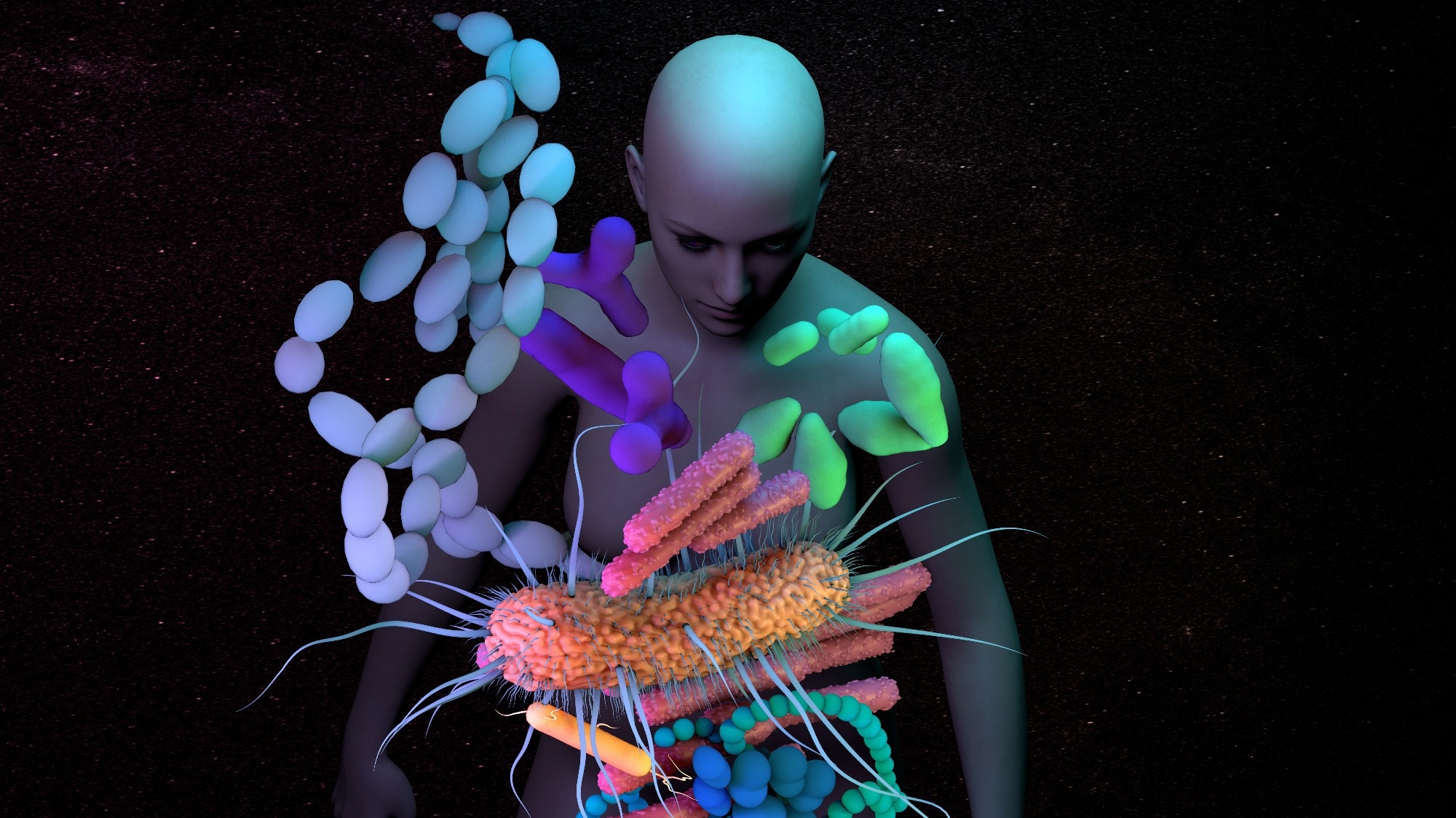In a recent study published in the journal Nutrients, a team of researchers in Australia conducted a review to understand the species-level diversity of the gut microbiome and its role in the pathology of Alzheimer’s disease. They also investigated how confounding elements such as prebiotics and probiotics and diet influence the various stages of Alzheimer’s disease.
Study: The Role of Diet and Gut Microbiota in Alzheimer’s Disease. Image Credit: Design_Cells / Shutterstock
Background
Alzheimer’s disease is a neurodegenerative disease characterized by progressive cognitive impairments that have an impact on daily life and functioning. These cognitive impairments affect abilities such as decision-making, memory, problem-solving, thinking, and mobility, often accompanied by drastic personality changes. The cognitive decline is attributed to the formation of amyloid-beta plaques and the hyperphosphorylation of tau neurofibrillary tangles, which also result in inflammation.
Recent studies have also found that the gut microbiome-brain axis plays a vital role in influencing the risk of mental health disorders such as depression and various neurodegenerative diseases, including Alzheimer’s disease. Individuals with mild cognitive impairments and Alzheimer’s disease have been found to have lower diversity indices for gut microbiota as compared to healthy controls.
Various factors such as age, genetics, diet, and antibiotic usage are known to impact the gut microbiome, and understanding the interactions between these factors, the gut microbiome, and its potential links to Alzheimer’s disease could help in the early identification of individuals at risk of developing the disease.
Alzheimer’s disease and gut microbiota
In the present review, the researchers discussed the incidence rate of Alzheimer’s disease worldwide and in Australia. They also shed light on the incidence rates of dementia and young-onset dementia and the mortality risk associated with dementia. Studies from the United States (U.S.) have shown that the annual health costs associated with Alzheimer’s disease and dementia are over 600 billion U.S. dollars, and it is expected to increase significantly by 2030.
The review also covered what is known about Alzheimer’s disease pathology, including detailed discussions about the formation of amyloid-beta plaques in the brain, starting with the orbitofrontal, temporal, and basal neocortex regions and eventually spreading to the amygdala, basal ganglia, hippocampus, and diencephalon.
Numerous hypotheses have been put forth to explain the mechanisms through which amyloid-beta peptides and tau neurofibrillary tangles contribute to the neurodegeneration in Alzheimer’s disease, such as hyperphosphorylation of tau neurofibrillary tangles and the amyloid cascade. The review expanded on these hypotheses, as well as other potential mechanisms such as mitochondrial dysfunction, oxidative stress, and neuroinflammation.
Studies investigating the link between gut microbiota and Alzheimer’s disease have reported an association between specific gut microbes and varying levels of Alzheimer’s disease biomarkers in the cerebrospinal fluid. Other studies have found a link between the composition of the gut microbiome and levels of amyloid peptide in the brain. The researchers presented an in-depth discussion of the existing research on associations between specific gut microbes and various pathological aspects of Alzheimer’s disease.
Diet, gut microbiome, and Alzheimer’s disease
The fact that diet plays a pivotal role in influencing gut microbiome composition and diversity is a well-supported finding. The composition of the gut microbiome can also be modified through specific dietary patterns and the consumption of various supplements, which can, in turn, have an impact on the gut-brain axis and influence Alzheimer’s disease pathology.
The review extensively discussed the role of various dietary components such as protein, fiber, fat, and polyphenols and various dietary patterns in influencing the gut microbiome environment and composition. It also reported on studies that found significant improvements in the cognitive function of Alzheimer’s disease patients after specific dietary patterns such as the ketogenic diet, Mediterranean diet, and diets targeting hypertension and neurodegeneration.
The researchers also found that although the body of research on the use of pre and probiotics supplements as therapeutic options for Alzheimer’s disease is still limited, various studies have reported that the use of pre and probiotics and combinations of the two can modify Alzheimer’s disease progression and related neuropathology.
Conclusions
To summarize, the review comprehensively examines the existing research on the interplay between diet, gut microbiota, and Alzheimer’s disease pathology. The findings suggest that gut dysbiosis is strongly linked to the progression of the pathology of Alzheimer’s disease and presents a potential avenue for non-invasive therapy and risk modification.
Journal reference:
- Dissanayaka, D. M. Sithara, Jayasena, V., Rainey-Smith, S. R., Martins, R. N., & Fernando, W. M. A. D. B. (2024). The Role of Diet and Gut Microbiota in Alzheimer’s Disease. Nutrients, 16(3). DOI 10.3390/nu16030412, https://www.mdpi.com/2072-6643/16/3/412
